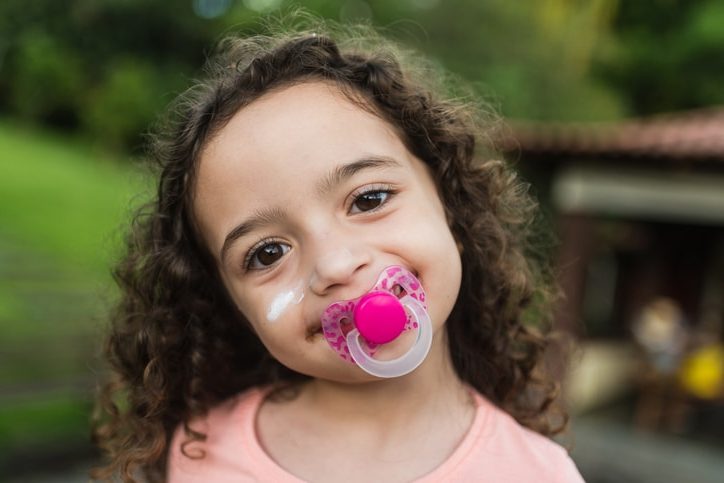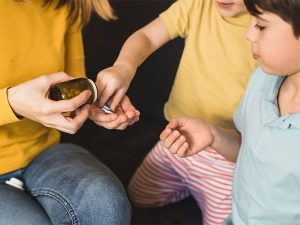Babies have a habit of sucking. Most babies have a strong sucking reflex. They put their fingers or even hands into their mouths and suck happily. Some babies even start sucking their fingers in the womb. Some babies no longer have a sucking reflex after they are full, but some babies still have a sucking reflex after they are full. For these babies, a pacifier can be a good way to calm them down.
My son did not want a pacifier when he was a child. It was due to our efforts and his specific situation. There are pros and cons to pacifiers. Whether or not to let children use them, how much to let them use them, etc. is a choice for parents, and this choice should be based on the pros and cons of pacifiers.
benefit
For new parents, the biggest benefit of a pacifier is that it can calm the child, especially if there is a noisy child at home. Even colic babies who cry for hours a day may be relieved by a pacifier. For babies, pacifiers are a means for them to learn to control their emotions, relax and feel safe. When the child is quiet, the parents are relieved.
If you are traveling, especially on an airplane, young children often cry because their ears feel pressure and they need to cry to release it. A pacifier will have a calming effect. Blood draws, injections, being in a new place, etc. can also be very helpful and can temporarily distract their attention.
It is difficult for some parents to put their children to sleep. If the children cannot fall asleep, the parents will feel sleepy and tired. In this case, a pacifier can be helpful. Some studies have found that pacifiers are associated with a reduced risk of sudden infant death syndrome (SIDS). It is not yet certain that pacifiers can prevent SIDS, but there is a strong correlation. This refers to letting children suck on pacifiers while sleeping. .
harm
Some studies show that using a pacifier too early can lead to breastfeeding difficulties, with babies preferring to suck on the pacifier between the nipple and the pacifier. Therefore, authoritative organizations recommend waiting 3 to 4 weeks for breastfeeding to be established before giving the baby a pacifier. However, further analysis found that it could not be proved that pacifiers cause breastfeeding difficulties. It is likely that there are already breastfeeding problems, and pacifiers only contribute to this problem. But to prevent possible nipple confusion, you should still wait 3 to 4 weeks.
Other studies have found that pacifiers can increase the risk of otitis media. If you want to avoid this problem, if you use a pacifier, you should stop using it at 6 months of age, because the infection rate of otitis media is very low from birth to 6 months old, even if you use a pacifier. Pacifiers increase the risk of otitis media, which is still very low. Compared with reducing the risk of SIDS, this risk still has more advantages than disadvantages. There aren’t many studies on this, so it’s not certain.
The development of teeth and oral cavity may be affected by pacifiers, but this will only occur in children who use pacifiers for a long time. Dental problems caused by pacifiers before the age of two will correct themselves within 6 months after stopping use. 2 Continuing to use a pacifier after the age of 2 may cause long-term problems, so if you use a pacifier, you should stop using it before the age of 2. Sucking on a pacifier can cause dependence. If a pacifier is used, the child will cry if it falls asleep at night. But this kind of dependence is easier to correct than the finger-sucking habit, and even so, it takes some time for parents to help their children quit.
As for other studies on the impact of pacifiers on development, there is no generally accepted or consistent results.
If you decide to use a pacifier, first, wait for 3 to 4 weeks; second, start weaning off when you are half a year old; third, do not use the pacifier as the first means of comforting your child, try other methods first; fourth, if the child is not dependent Don’t force the pacifier on them. If it falls off during sleep, don’t put it back; fifth, don’t apply sweetener to the pacifier; finally, keep it clean, replace it regularly, and don’t share the pacifier with other children.




